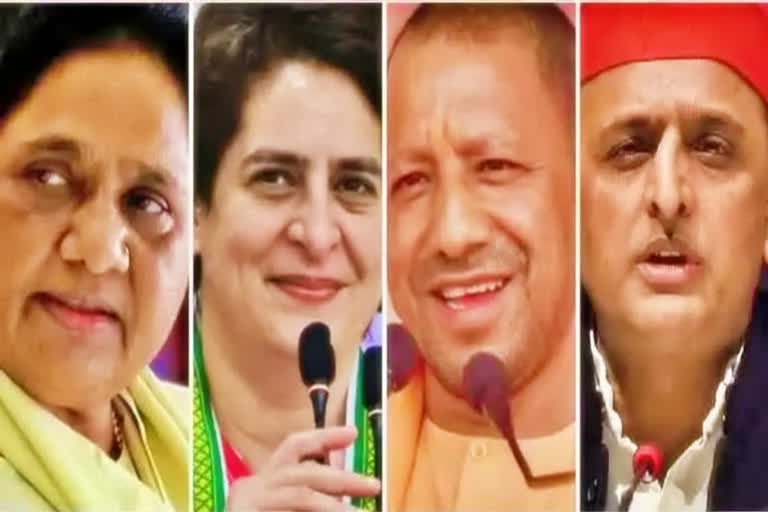The campaign for the Uttar Assembly election has turned into the aggressive mode as, with announcement of candidates for up to the fourth round, political parties also get real about where they stand. Despite the claims and counter-claims, ground-level feedback reaching parties’ headquarters in Lucknow has made their leaders realise which way the wind might blow in the next few days. Polling for the 403-member Assembly begins on February 10 and will continue in seven phases up to March 7. The counting is on march 10 and the results could be out the same day.
The pace of campaign for at least two contenders – the incumbent Bharatiya Janata Party (BJP) and the past winner Samajwadi Party (SP) – has become quite frenzied with their leaders’ utterances becoming harsh, apparently in order to send a message to supporters that are not to be intimidated. The other participants, such as the Bahujan Samaj party (BSP), Congress and the Bhagidari Parivartan Morcha (BPM) comprising AIMIM and other parties, too are taking an aggressive stance as they have begun to realise that the election could be open, rather than a bipolar affair.
Given the electoral history of no political party getting a second chance to rule at least since 1989, and the re-emergence of caste divisions after a brief interval, the state is poised to see an interesting fight ahead. The BJP, buoyed by the popularity of Narendra Modi, had managed to get the support of all sections within the Hindu community in the 2014 Lok Sabha election, 2017 Assembly election and also in the 2019 Lok Sabha election. However, it also meant that no particular caste was given any preferential treatment, as used to be commonly expected in previous regimes. As a fall-out, it also meant that no caste (or castes) felt it was their government.
OBC reassertion
The collective impact has led to a re-assertion of the other backward castes (OBCs) and most backward castes (MBCs) to seek a place in the ruling dispensation -- apparently the attempt of the BJP to keep the OBC support intact has not been enough. It was apparent in the manner in which BJP ministers and legislators belonging to the OBCs and MBCs left party in the last couple of months. Most of them gave a similar explanation for their action – so similar that it appeared to be scripted at one place by one person.
Also read: Will farmers push back BJP’s communal politics?
While it may be argued that the defections also reflected the unease of leaders about their victory but it did create a perception that the BJP had not been able to keep its flock together. It has also raised new questions about the importance of some castes and communities: are Yadavs, Muslims, Brahmins and Dalits not as important as other OBCs and MBCs?
